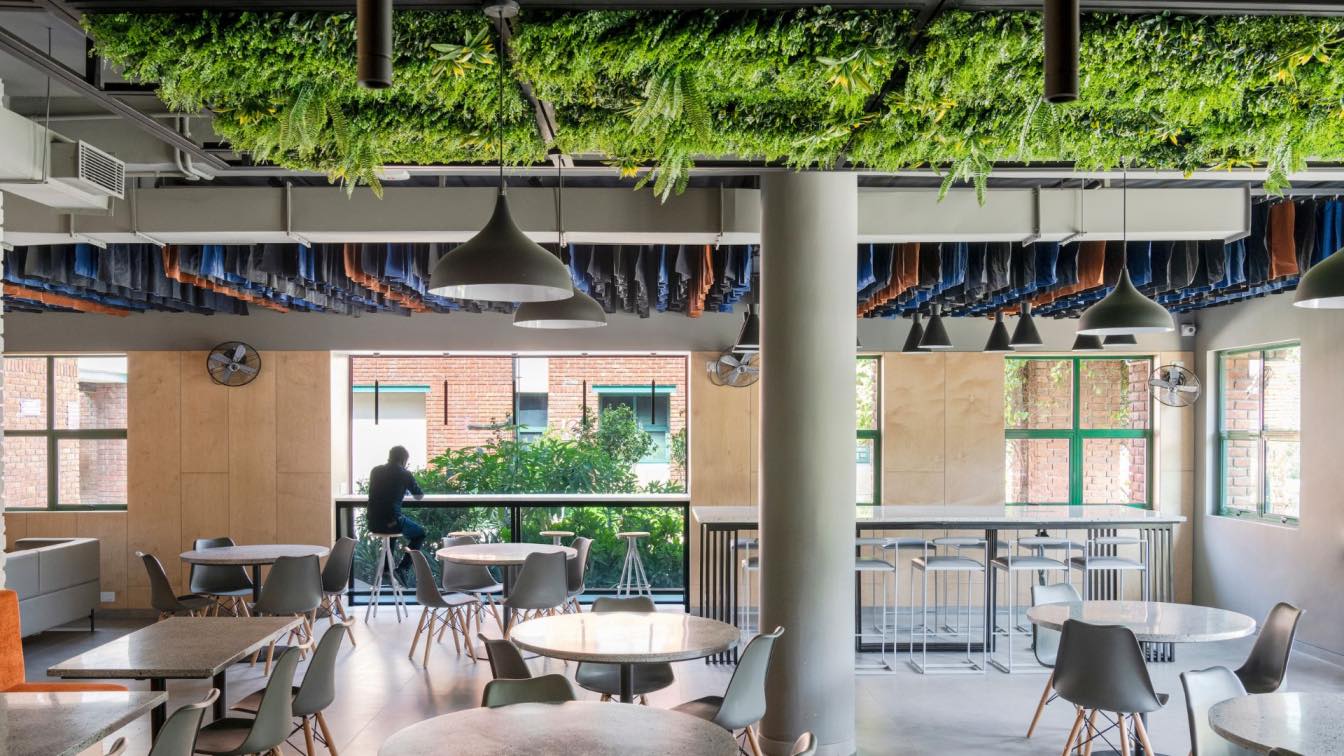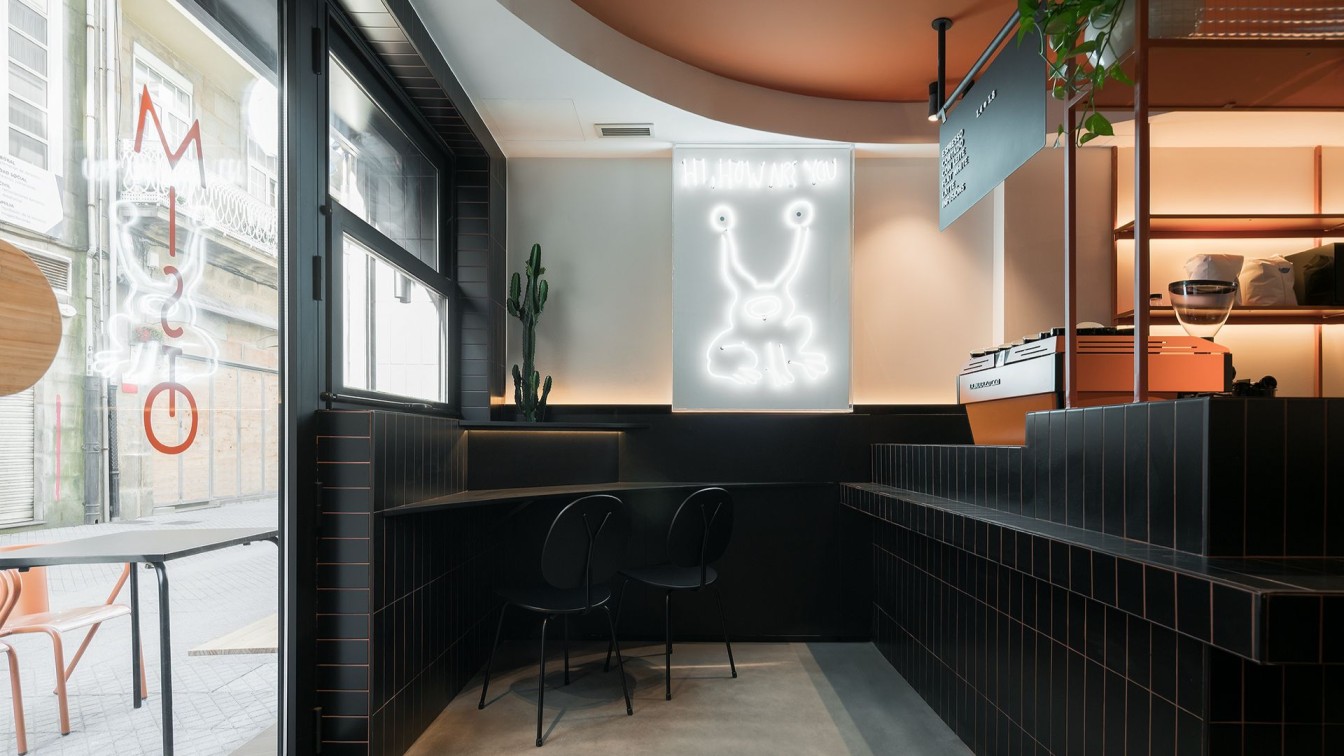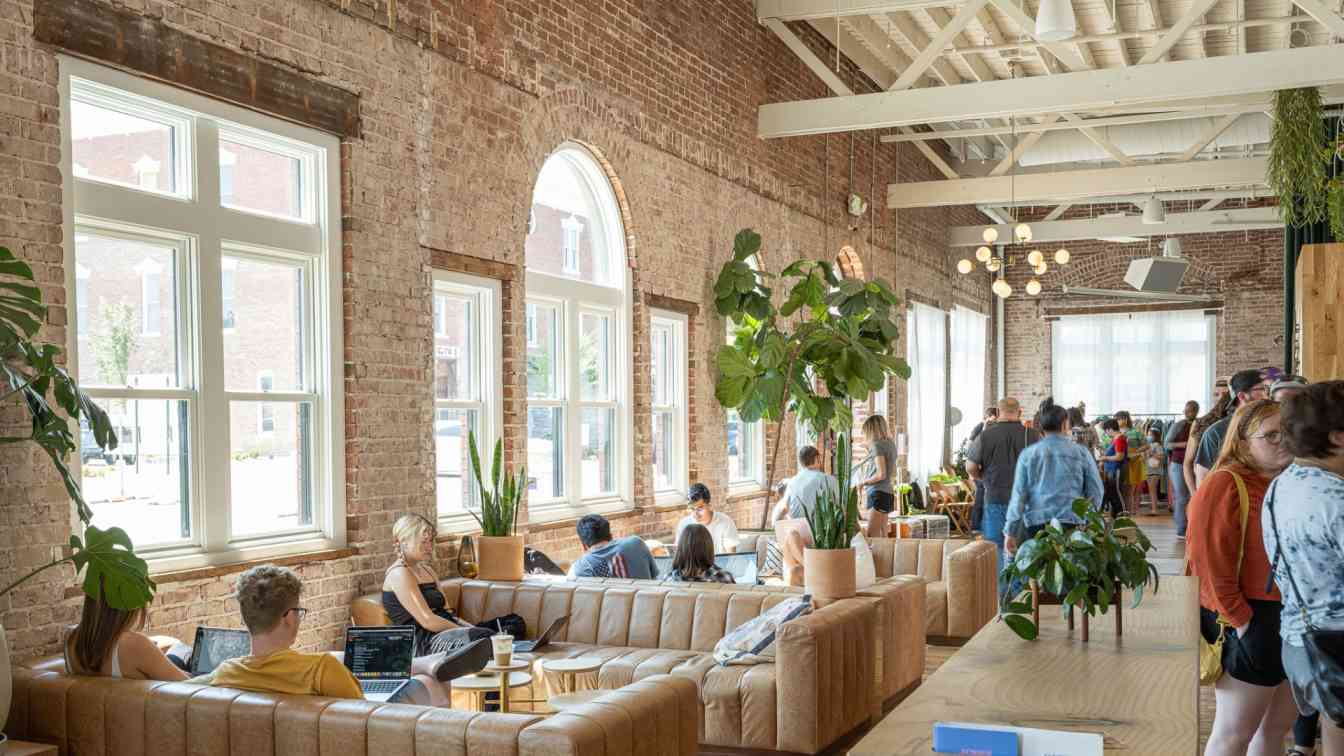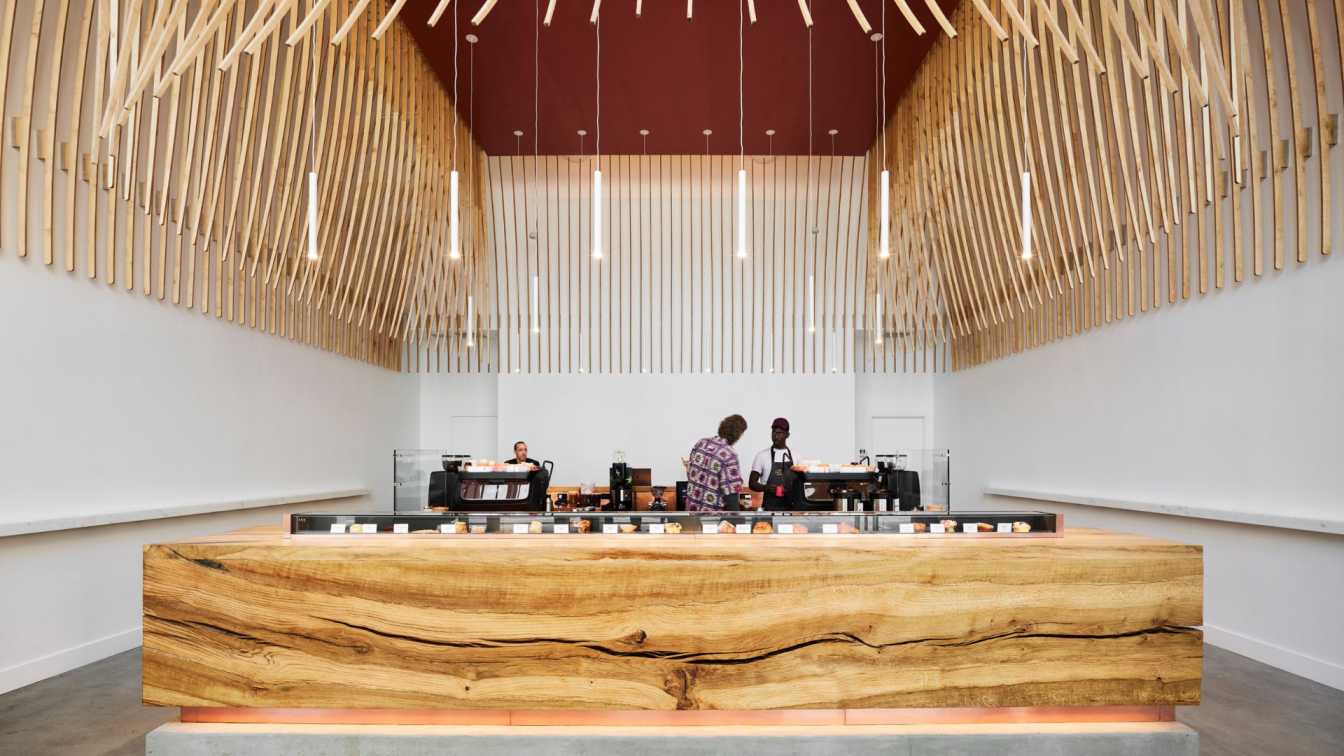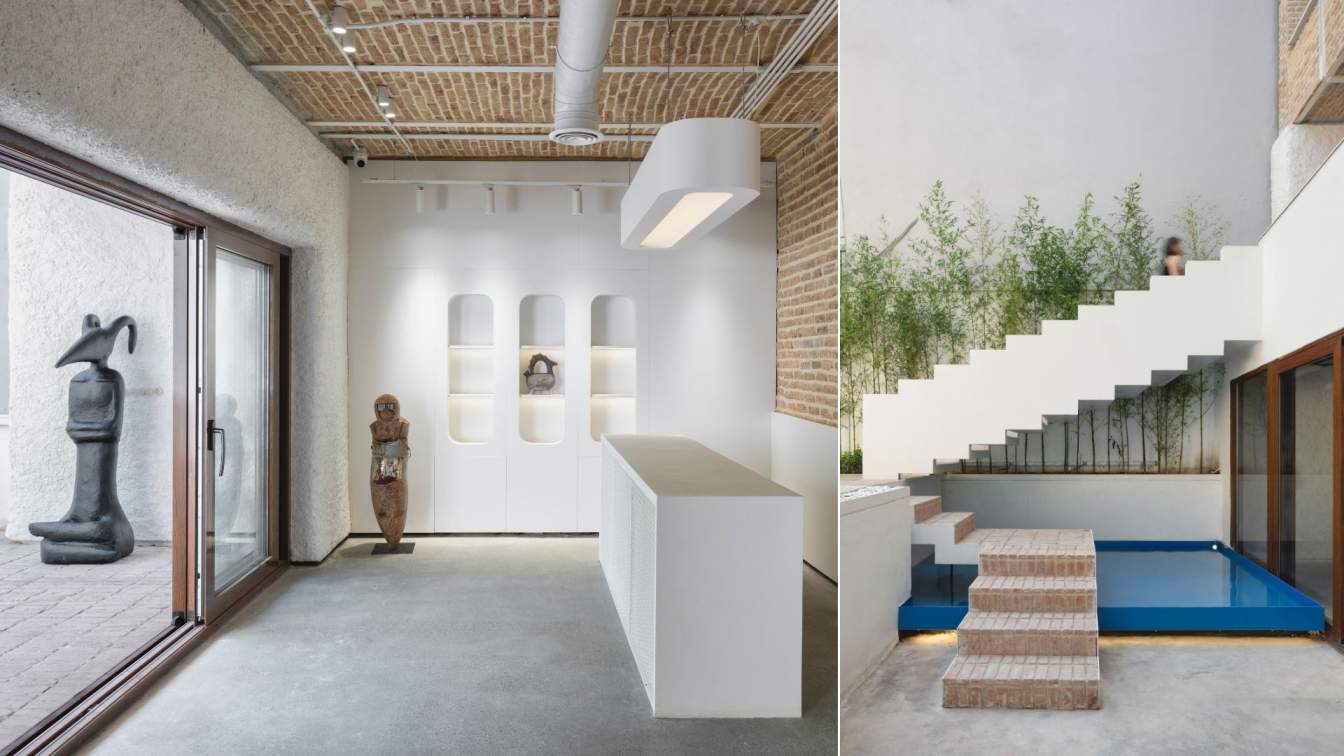Team3: A campus cafeteria designed for debate, discussion and innovation.
The JIM Cafe project called for the refurbishment of an existing cafeteria at the Jaipuria Institute of Management, Noida. The brief called for a functional canteen that serviced both the hostel block and the academic block on the campus along with creating a node for leisure. The design intent reinterprets the premise to create a vibrant, multifunctional node that addresses requirements beyond the cafe typology. The cafe is envisioned as a forum for ideation, befitting its setting in one of the leading management institutes in the country.
The cafe can be accessed both from the hostel block as well as the academic block forming a vital point of confluence between the two. The cafe's layout is centred around a functional and flexible kitchen that is abutted by an open service counter. The counter showcases fluted birchwood panelling with a terrazzo worktop and is placed against a brick textured back wall animated with displays of the menu and shelving.
The seating area is conceptualised as a dynamic space that lends itself to multiple functions. A large custom-made terrazzo high table with seating, forms the main meeting zone. The height of the table is based on studies on the influence of ergonomics on increasing productivity and works to enable quick and efficient discussions. This zone is also equipped with provisions for screening presentations and power sources. The general layout also includes a casual dining area with circular tables, bar-style seating along large windows that double up as workstations, as well as booths for private discussions and meetups. Movable furniture in a largely open planned space allows for a large degree of flexibility, with the cafe lending itself to group screenings as required. The different seating options work to break the monotony of the space and is used in multiple different ways by the students based on group size and activity.

The space features a palette of neutral-toned, durable, and easy-to-maintain surface finishes with grey floor tiling, birchwood wall panelling in selected areas, and white-painted brick walls. This muted scheme is juxtaposed against a striking ceiling installation composed of a suspended frame of plants and a layered display made from denim scraps from a neighbouring factory. The fabric installation uses hues of blue and orange from the institute's brand colours. The ceiling brings to the scheme a sense of newness and youth, subtly referencing student culture with the use of a ubiquitous material like denim. The ceiling installation is interrupted by efficiently organised HVAC ducting, industrial wall-mounted fans, and drop-down light fixtures.
Sustainability factors also play a defining role in determining the design of the cafe. The lighting scheme complements the abundance of natural light brought in by the large openings that line the facade keeping energy consumption to a minimum. Artificial lighting is prioritised in areas away from the windows, and a system of track lights draws attention to design elements like the painted brick wall. Efficient HVAC systems also work to reduce energy consumption.
Materials and finishes too, are optimised for minimal resource consumption. Existing brickwork is repainted, avoiding the need for new surface finishes. Plywood is used as a fair face material for wall panelling, negating the need for additional veneers or laminates.
The statement ceiling is also designed keeping the ideas of recyclability in mind. The layered installation is made from fabric scraps from a nearby denim manufacturing unit, repurposing waste to create a striking element that ties the space together.
The design of the JIM Cafe transforms the space from a mere campus cafeteria, to an explosion of vibrancy that forms the heart of the campus. A vital point of gathering and interaction for the students of the campus, the JIM Cafe imbibes the spirit of youthful ambition and innovation in its design.












